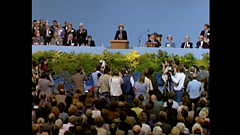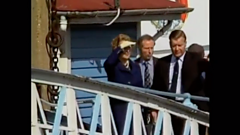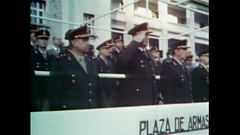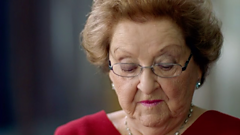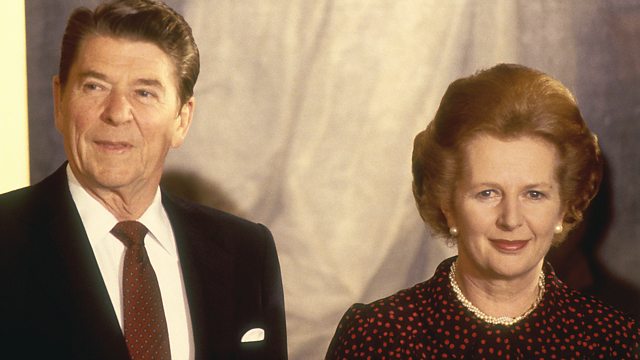
Enemies
Mrs Thatcher confronts her enemies, leading the country to war, taking the economic fight to her opponents in the trade union movement, and her life is threatened by the IRA.
The third episode sees Mrs Thatcher plunged into dramatic conflicts with determined enemies that will define her premiership and her legacy.
Against a backdrop of economic downturn Mrs Thatcher is struggling in the opinion polls and is labelled the “least popular prime minister since polling began” but her public image is transformed by a totally unexpected turn of events in the South Atlantic. When Argentine forces occupy the British Falkland Islands Mrs Thatcher finds herself a war leader. She wins the respect of the public by remaining resolute in her belief that the islands should be recovered. She wins respect in cabinet and the military by remaining calm and clear through the short conflict in the Falklands despite the serious political jeopardy she faces and the emotional toll of sending men into war. The triumph of the British forces transforms Mrs Thatcher’s reputation in the country and in the world.
Following her victory in the 1983 general election Mrs Thatcher begins to assert herself in global politics, beginning an engagement with Mikhail Gorbachev, a rising star of the Soviet Communist party. At home she faces another challenge to her leadership from the left-wing leadership of the National Union of Miners.
The controversial decision to call a national strike puts Mrs Thatcher into a conflict she had long anticipated. Having watched the miners destabilise the Conservative government of Edward Heath in the 1970s Mrs Thatcher has prepared for this dispute. In the background, she plays a role in a strategy that will eventually force the miners into a return to work and allow the government to claim a historic and transformative victory. The price is a sense of nation divided by class, region and economic fortunes.
The jeopardy of the Falklands and miners is surpassed by the threat of another enemy. At the 1984 Conservative Party conference the IRA bomb her hotel in an attempt to kill her and her most senior colleagues. She has a narrow escape as close friends die or suffer terrible injuries.
This episode includes interviews with defence secretary John Nott, press secretary Bernard Ingham and cabinet members Norman Tebbit, Michael Heseltine and Malcolm Rifkind, senior civil servants Robin Butler, John Coles and Andrew Turnbull, personal assistant Cynthia Crawford, Downing Street administrator Janice Richards, Falklands commander Sir Julian Thompson, opposition leader Neil Kinnock and striking miner Chris Kitchen.
Last on
More episodes
Previous
Clips
-
![]()
Margaret Thatcher After Brighton Bombing
Duration: 02:56
-
![]()
Margaret Thatcher Closing The Mines
Duration: 01:01
-
![]()
The Start of the Falklands War
Duration: 00:54
-
![]()
Margaret Thatcher's Enemies
Duration: 01:04
Credits
| Role | Contributor |
|---|---|
| Executive Producer | Steve Condie |
| Director | Stephen Finnigan |
Broadcasts
- Mon 3 Jun 2019 21:00
- Wed 5 Jun 2019 23:15±«Óătv Two England & HD only
- Fri 21 Jun 2019 00:45
- Tue 23 Jun 2020 19:00
- Tue 1 Dec 2020 21:00
- Wed 2 Dec 2020 02:05
- Wed 22 Jun 2022 21:00
- Thu 23 Jun 2022 02:30
- Mon 26 Feb 2024 21:00
- Tue 27 Feb 2024 01:30
